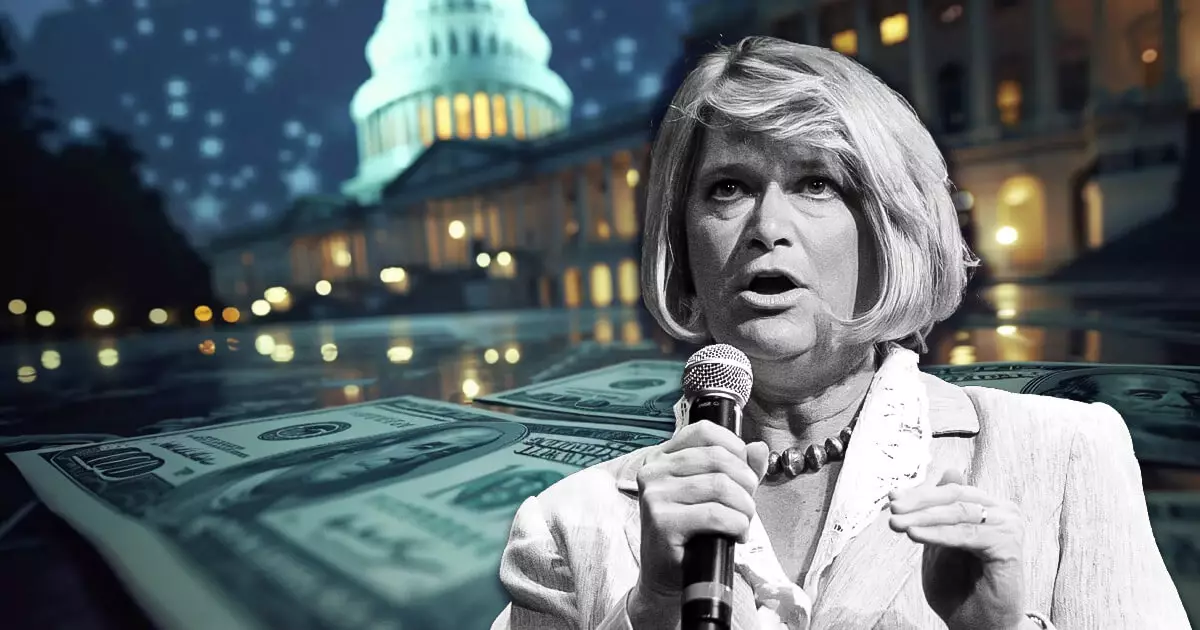In recent discussions surrounding the future of cryptocurrency regulation in the United States, Senator Cynthia Lummis of Wyoming has speculated on the potential departure of SEC Chair Gary Gensler from his position. This commentary arose during a segment on CNBC’s Squawk Box on September 27. Lummis challenged the notion presented by the hosts that Gensler is content in his role and has no intention of leaving. She posited that his tenure may indeed come to an end next year, especially if Donald Trump secures the presidency in the upcoming elections. This speculation sheds light on the constantly fluctuating dynamics of political influence within regulatory bodies, which can significantly impact the crypto sector.
Lummis’s assertion suggests a broader concern within legislative corridors regarding the SEC’s leadership and its approach to cryptocurrency as an emerging asset class. She refrained from making predictions about Gensler’s future should Vice President Kamala Harris take the presidential office, indicating the uncertainty that lies ahead in the political landscape.
The Commodity Debate: Bitcoin, Ethereum, and Beyond
A focal point of Lummis’s critique was Gensler’s interpretation of various cryptocurrencies, particularly Bitcoin and Ethereum. While she stated that Bitcoin is classified as a commodity, she expressed frustration that Gensler does not fully acknowledge the commodity status of Ethereum or other potential crypto assets. This gap in recognition reflects a larger issue—there is an urgent need for clear regulatory definitions in the crypto space. Lummis emphasized this necessity by referencing the Howey Test, advocating for a comprehensive framework that could categorize more assets under the Commodity Futures Trading Commission’s jurisdiction.
Gensler’s historical stance, particularly reiterated during a recent Squawk Box appearance, reveals the SEC’s cautious approach to digital currencies. His reluctance to define Ethereum’s status suggests a persistent ambiguity that can stifle innovation in the crypto sector. Without clarity from regulatory bodies, businesses and investors operate in a murky legal landscape which can deter growth and investment.
The Call for Regulation and Clarity
Lummis expressed her concerns about the pace of regulatory development in the United States, especially when compared to the European Union, which has established effective regulations for its crypto market. She articulated the dangers of allowing foreign regulatory frameworks to surpass those of the U.S., highlighting the necessity for Congress to take immediate action to create a coherent regulatory environment for cryptocurrencies.
The Senator’s critique of the SEC’s methodology was forthright; she categorized their current strategy as reactive enforcement rather than proactive regulation. This “regulate by enforcement” approach has led to increased court cases and confusion rather than the clarity that industry players desperately need. By failing to provide clear guidelines, the SEC risks alienating those they intend to regulate, causing uncertainty and potentially hindering the development of a robust crypto market in the U.S.
Lummis’s remarks provide a pivotal perspective on the challenges facing cryptocurrency regulation today. She underscored the importance of not confusing fraudulent activities—often visible in any form of trade—with the legitimate innovations associated with cryptocurrencies. By separating these concepts, lawmakers and regulators can better foster a thriving environment where digital assets can be developed and embraced responsibly. As the dialogue continues, it remains clear that a proactive, thoughtful regulatory approach is essential for the future of cryptocurrencies and their integration into the broader financial system.

